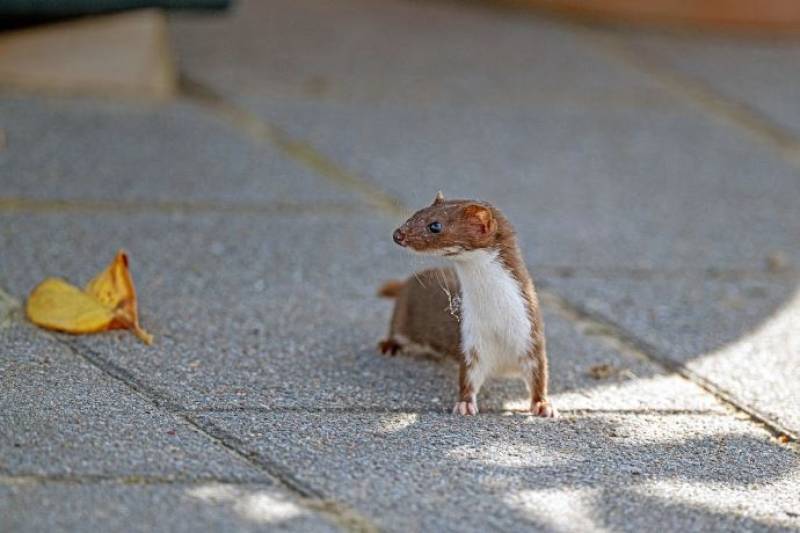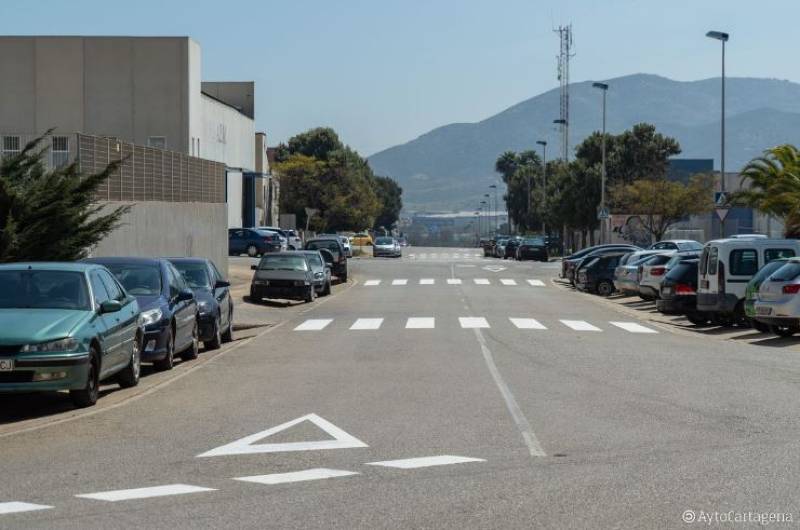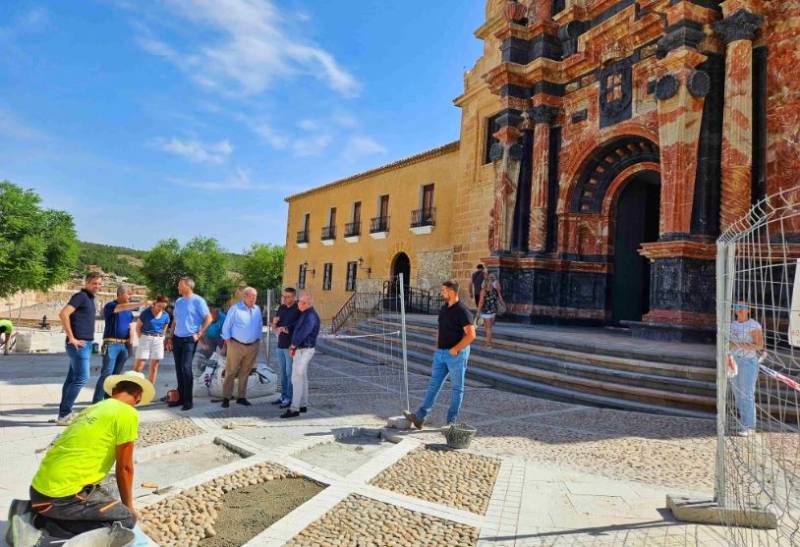- Region
- Águilas
- Alhama de Murcia
- Jumilla
- Lorca
- Los Alcázares
- Mazarrón
- San Javier
-
ALL AREAS & TOWNS
- AREAS
- SOUTH WEST
- MAR MENOR
- MURCIA CITY & CENTRAL
- NORTH & NORTH WEST
- TOWNS
- Abanilla
- Abarán
- Aguilas
- Alamillo
- Alcantarilla
- Aledo
- Alhama de Murcia
- Archena
- Balsicas
- Blanca
- Bolnuevo
- Bullas
- Cañadas del Romero
- Cabo de Palos
- Calasparra
- Camping Bolnuevo
- Campo De Ricote
- Camposol
- Canada De La Lena
- Caravaca de la Cruz
- Cartagena
- Cehegin
- Ceuti
- Cieza
- Condado de Alhama
- Corvera
- Costa Cálida
- Cuevas De Almanzora
- Cuevas de Reyllo
- El Carmoli
- El Mojon
- El Molino (Puerto Lumbreras)
- El Pareton / Cantareros
- El Raso
- El Valle Golf Resort
- Fortuna
- Fuente Alamo
- Hacienda del Alamo Golf Resort
- Hacienda Riquelme Golf Resort
- Isla Plana
- Islas Menores & Mar de Cristal
- Jumilla
- La Azohia
- La Charca
- La Manga Club
- La Manga del Mar Menor
- La Pinilla
- La Puebla
- La Torre
- La Torre Golf Resort
- La Unión
- Las Palas
- Las Ramblas
- Las Ramblas Golf
- Las Torres de Cotillas
- Leiva
- Librilla
- Lo Pagan
- Lo Santiago
- Lorca
- Lorquí
- Los Alcázares
- Los Balcones
- Los Belones
- Los Canovas
- Los Nietos
- Los Perez (Tallante)
- Los Urrutias
- Los Ventorrillos
- Mar De Cristal
- Mar Menor
- Mar Menor Golf Resort
- Mazarrón
- Mazarrón Country Club
- Molina de Segura
- Moratalla
- Mula
- Murcia City
- Murcia Property
- Pareton
- Peraleja Golf Resort
- Perin
- Pilar de la Horadada
- Pinar de Campoverde
- Pinoso
- Playa Honda
- Playa Honda / Playa Paraíso
- Pliego
- Portmán
- Pozo Estrecho
- Puerto de Mazarrón
- Puerto Lumbreras
- Puntas De Calnegre
- Region of Murcia
- Ricote
- Roda Golf Resort
- Roldan
- Roldan and Lo Ferro
- San Javier
- San Pedro del Pinatar
- Santiago de la Ribera
- Sierra Espuña
- Sucina
- Tallante
- Terrazas de la Torre Golf Resort
- Torre Pacheco
- Totana
- What's On Weekly Bulletin
- Yecla


- EDITIONS:
 Spanish News Today
Spanish News Today
 Alicante Today
Alicante Today
 Andalucia Today
Andalucia Today
Date Published: 23/06/2025
Silent disappearance: Weasels face extinction in Murcia
With only 44 sightings a year across Spain, not a single weasel has been recorded in the Region of Murcia

The common weasel, the world’s smallest carnivore, may be silently vanishing from the Region of Murcia. Once a shy but resilient part of the ecosystem, not a single individual has been officially recorded in the Region in recent years. This alarming absence has led researchers to warn of a possible local extinction.
According to a recent study published in the journal Diversity, the weasel population across Spain in general is rapidly declining. On average, only 44 sightings are reported nationwide each year. In Murcia, that number is now zero.
By comparison, other small carnivores such as the stone marten and polecat have up to five times more confirmed records.
The study attributes the weasel's decline to a combination of factors: loss of habitat due to land use changes, rodenticide use, roadkill, increasing presence of larger predators, climate change and possibly even unknown diseases.
In Mediterranean areas, including southeastern Spain, the decline in vole populations, a key prey species for weasels, is a major concern, especially as climate change further stresses these ecosystems.
But sadly, the demise of the weasel isn’t sudden and experts have been sounding the alarm for years. Past records, like those from the Yecla Mammal Atlas published in 2015, already noted difficulties in tracking the species. A 2021 urban carnivore survey in the city of Murcia found no trace of weasels in either orchard lands or nearby forests.
Other local environmental voices echo these concerns. Rubén Vives, spokesperson for Ecologistas en Acción, acknowledges that while weasels may still survive on the fringes of the Region, such as in the Segura mountain ranges near Albacete, they haven’t been recorded in Murcia proper for decades.
“It’s a habitat issue,” he says. “Weasels have historically been tied to traditional farming and livestock areas, and those are gradually disappearing.”
The weasel’s unique ability to live in both forested and peri-urban environments once made it a reliable environmental indicator. Its presence signaled a healthy ecosystem, rich in biodiversity and balanced human interaction. But those conditions are becoming increasingly rare.
Simulations for the 21st century suggest a population decline of more than 30% in Spain, but the outlook is even more dire in the southeast. Between 2041 and 2070, Murcia could see an 82% to 89% reduction in weasel populations - a catastrophic drop that experts believe requires immediate intervention.
Despite these warnings, there are currently no conservation measures in place for the species at either the regional or national level, but there is some hope for this tiny carnivore. A new project to catalogue flora and fauna in Cartagena is about to launch under the leadership of Professor María Luisa Suárez Alonso.
The initiative will involve teams from the University of Murcia’s Inland Water Ecology and Mediterranean Ecosystems research groups. This will be the first targeted opportunity in years to search for evidence of weasels in the city’s surrounding landscapes.
Without this effort and others like it, the weasel looks destined to become a ghost of Murcia’s past and an unfortunate glimpse into a future of more environmental degradation.
Image: Pexels
Loading
See more news about animals in Spain:
OR
Sign up for the Spanish News Today Editors Roundup Weekly Bulletin to get a comprehensive email with all the week’s news for Spain, Murcia, Alicante and Andalucía.
Get a sneak peek – here are a few of our recent Subscription Bulletins:
Discount Special Offer subscription:
36.95€ for 48 Editor’s Weekly News Roundup bulletins!
Please CLICK THE BUTTON to subscribe.
Contact Murcia Today: Editorial 000 000 000 /
Office 000 000 000






























